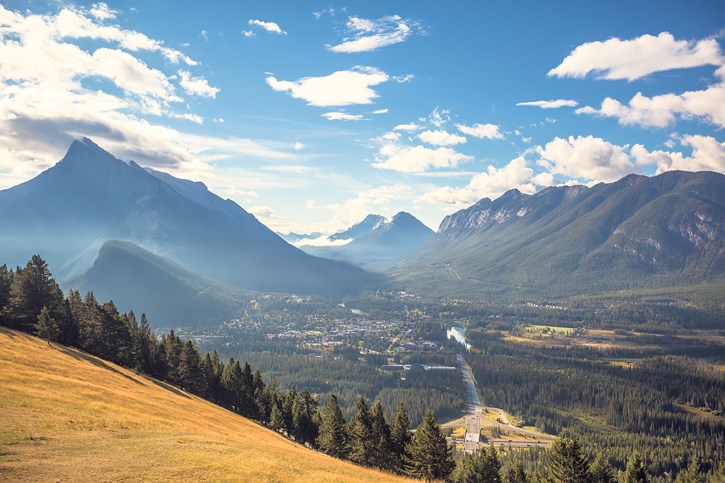BANFF – Managing impacts of tourism and traffic, increasing housing supply and providing important social programs are the primary concerns of residents as Banff’s new community plan is being developed.
Consultation on the review and update of the Banff Community Plan – a social, economic and environmental blueprint for Banff over the next 10 years – is well underway with a goal for a draft plan by November.
Town of Banff officials say the plan aims to align with the priorities of residents and build on direction in the recently adopted new management plan for Banff National Park, a Parks Canada document that sets direction for Canada’s premier national park.
Randall McKay, the Town of Banff’s manager of strategic initiatives and special projects, said residents have validated expectations that the main concerns are around the need to increase housing and manage the impacts of tourism and traffic.
He said providing important social infrastructure is also important to residents, noting social services, inclusivity and healthcare are all top of mind.
“It’s also referring to our sense of community and the background structures and systems that we need to allow social, economic, and cultural life to happen,” he said.
“These include public spaces and places that meet our social needs as a community to observe, mingle, and interact with other people, and related infrastructure that supports it.”
The community plan will reinforce the broader issue of development in terms of federally legislated finite boundary and development limits and requirements of living in a national park.
In addition, the updated plan looks to strengthen sustainability in terms of climate change, transition to renewable energy, transportation and mobility, urban design, community services, social and cultural progress, and strengthening Indigenous relations.
As part of the first of three phases of public engagement, there have been three drop-in open house sessions in addition to a number of targeted stakeholder engagement sessions to date, with more planned this month.
Mayor Corrie DiManno, who is a public member of the council-struck community plan steering committee, encourages all residents to get involved to help shape the future of Banff through this primary long-range planning document.
“I can’t stress enough about how important it is for all residents to have your voice heard and to express your concerns and what you would like to see in your community,” she said.
“Residents are experts in what it is like to be Banffites and we want to hear from them about how to make Banff a better place into the future.”
As the first stage of public consultation prepares to wrap up, work will begin on a draft community plan, which will seek further public input from residents, special interest groups and organizations from November 2023 to March 2024.
“We will present a draft community plan for feedback to understand if the plan addresses the community’s priorities, what people like or don’t like about the plan, and what might be missing,” said McKay.
Finally, a revised plan will be shared with the public for input from April to May 2024. Revisions to the draft plan that incorporate input from previous stages can be reviewed. There will also be federal feedback and considerations from a strategic environmental assessment.
The public input will culminate in a public hearing before town council, followed by Parks Canada review of the final plan and sign-off by the federal minister responsible for the federal agency.
McKay said it is important to keep in mind that the community plan team is also using data from recent projects and studies in which residents have already indicated what is important to them.
He said these include the 2023 resident satisfaction survey, the 10-year vision for tourism in Banff and Lake Louise, 2018 social assessment, 2021 seniors housing survey, the 2018 Bow Valley human-wildlife coexistence task force and 2022 expert panel on moving people sustainably, among others.
“We have never had such a rich array of data and studies to work with and we will use this invaluable information to inform our draft plan,” said McKay.
An online community plan survey is currently available at https://banffviewpoints.ca/communityplan.
The survey has been extended until Aug. 31 to give residents plenty of time to respond during the busy summer months.




